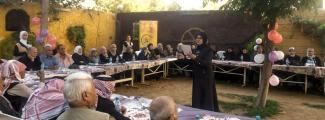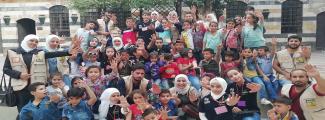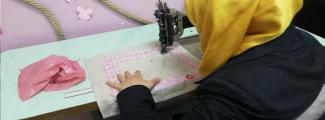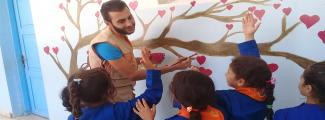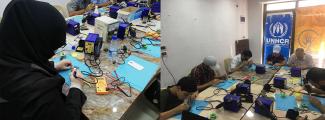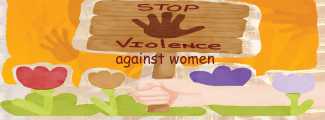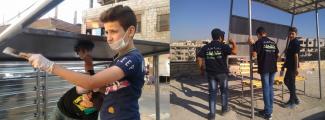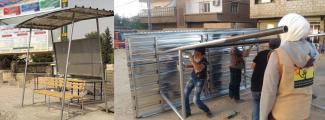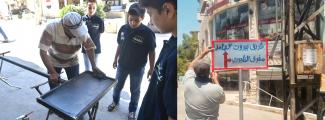Eight-year-old boy Hasan lives with his parents and siblings in…
The boy was sexually assaulted while playing with his mates in the basement of the building. Two of his playing mates, aged 11 and 12 respectively, tied him down and attempted to abuse him sexually. Aware that the boy’s screaming was heard by a neighbor, the aggressors ran away. When the neighbor informed Hasan’s father of what had happened, the latter beat the boy severely and confined him in his room for one month, forbidding him to play with his siblings or go out.
The story began after a SSSD awareness campaign on sexual violence. During the campaign, the concept and types of sexual violence were duly explained, as well as its negative consequences and the risks of non-reporting. Hasan’s mother happened to be one of the beneficiaries. After the campaign ended, the woman asked to talk to our psychologist as she was in a state of extreme confusion and worry for her son.
She related to us the details of the story. To start with, the major problem was how to persuade the husband to reduce the pressure on Hasan in order to allow him to integrate the traumatic episode, then start the therapy to help him overcome its consequences and make a strong fresh start.
We worked with the mother to enhance communication between her and her husband so she could try to convince him to come to the SSSD community center. The husband at first refused to cooperate in solving his son’s problem, insisting on locking him up in his room. Hasan’s mother, however, was not abashed by her husband’s resistance and, supported by the SSSD psychologist, she made repeated attempts to discuss with him the serious consequences of such behavior on their son. After much effort, she was finally able to persuade him. Though a bit reluctantly, Hasan’s father visited the community center, allowing the boy to accompany him.
We talked to him extensively about the need to consider Hasan as a child survivor of a traumatic event, emphasizing the fact that the boy, far from being guilty, was a victim of aggression. Though hesitant at first, the father gradually let himself be persuaded and finally received our arguments positively. So, we agreed with the parents on the therapy plan.
Hasan was eventually referred to a medical institution for a thorough clinical examination to reveal the extent of his injuries. Tests indicated that Hasan had been mildly wounded, which caused moderate infections. The boy received the necessary anti-infective treatment during which the parents had to observe possible stains of secretions on the boy’s bedsheets and underwear and regularly report to the doctor to ensure a proper follow-up and proceed in the treatment plan.
The mother reported that Hasan suffers from bedwetting. We also noticed changes in the boy’s behavior, namely, an evident aggressiveness towards children around him, especially his siblings, and specifically his younger brother whom he beat in a very violent manner.
Hence Hasan was referred to the CC psychologist who started individual sessions with him. Throughout the sessions, we worked on enhancing the boy’s confidence in himself and the people surrounding him and on mitigating his aggressive behavior towards his siblings. Through regualr follow-up, we focused on methods of prevention to protect the body from any risk one may incur and on the correct actions that must be taken in the event of such exposure.
We also worked with the boy’s parents to enhance communication between mother and child and emphasize the importance of an equal, non-discriminative treatment between children to relieve the pressure on Hasan. Over time, their change of attitude has had a positive effect in mitigating the boy’s aggressive behavior towards his siblings.
Hasan was also involved in the CC activities to help him reintegrate the community, especially after his rather long confinement.
Follow-up with the parents was maintained until confirmation that the improvement of Hasan’s behavior was clear and definitive. Finally, the case was closed after completion of the treatment plan. The boy has now fully recovered and returned to normal life with his peers.

